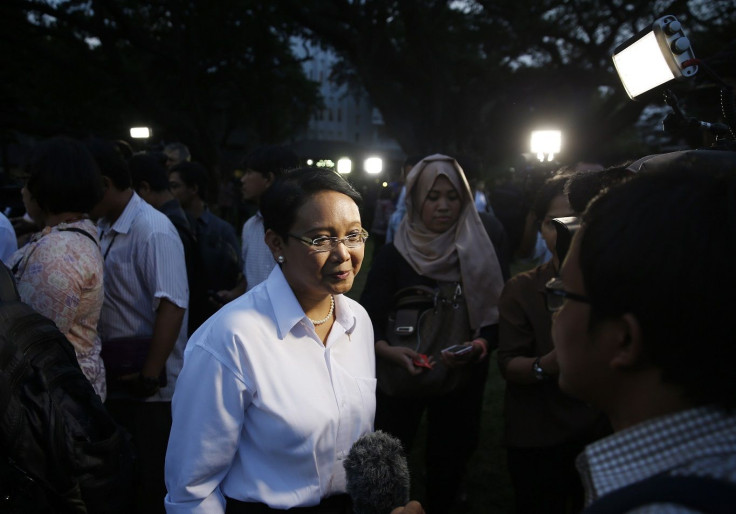Brother Of Indonesian Maid On Death Row In Saudi Says Indonesia Has Death Penalty Double Standards For Refusing Clemency To Bali Nine, Others

The Indonesian government has double standards when it comes to killing criminals, according to the family of an Indonesian domestic worker on death row in Saudi Arabia. The government paid 7 million Riyadh [$2.4 million] as blood money to save Satinah Binti Jumadi Ahmad from execution in the Arab state in 2014, but it won’t back down on executing Bali Nine pair Andrew Chan and Myuran Sukumaran despite repeated pleas from the Australian government.
The 41-year-old domestic worker had been sentenced to death by beheading for murdering and robbing her employer’s wife. To spare its citizen from the capital punishment, the Indonesian government sent a formal appeal to the then-ruler King Abdullah to pardon Ahmad, and had paid the legally recognised “blood money” to family of Ahmad’s victims.
Ahmad’s life was spared, and her family were thankful that their government did everything it could to save her. However, they can’t help but think Indonesia has double standard when it comes to executing criminals.
“On the one hand, Indonesia is begging for its citizens to escape the death penalty, meanwhile Indonesia’s firing squad executives inmates, it’s not fair,” Paeri al-Feri, Ahmad’s brother, told the Guardian. “How can you plead for a lighter sentence or even freedom from other countries if the death penalty still exists in Indonesia?”
Diyya, or blood money, is legally recognised in Islamic Sharia law. It is the financial compensation paid to the heirs or family of a victim for the offender to be forgiven. Australia does not apply the Shariah law of blood money, but has also shelled out money for Indonesia. It has given Indonesia a billion dollars in aid back in 2005. Then-prime minister John Howard announced the aid package of $500 million in grants and another $500 million in concessional loans as response to the tsunami that devastated Southeast Asia the previous December. It should be noted that the aid was unrelated to sparing the lives of the Australian citizens on death row.
Australian Prime Minister Tony Abbott has recently sent an 11th-hour appeal for Chan and Sukumaran’s clemency to his Indonesian counterpart, President Joko Widodo. However, Mr Widodo previously vowed not to give in to outside pressures, saying he would not give compromise to drug offenders. And as Foreign Affairs Minister Julie Bishop continues to lobby for the pair’s lives, Indonesian minister Retno Marsudi is also fighting for 229 Indonesian nationals on death row outside the country.
The foreign minister’s spokesperson, Armantha Nasir, defended Indonesia’s position to the Guardian, saying their use of capital punishment is within the bounds of the International Covenant on Civil and Political Rights. The covenant claims that death penalty may only be imposed for the “most serious crimes.”
U.N. secretary general Ban Ki-moon has recently condemned Indonesia’s execution of criminals with drug-related charges. He spoke with Marsudi to express his concern over the matter.
“The secretary general appeals to the Indonesian authorities that the executions of the remaining prisoners on death row for drug-related offences not be carried out,” spokesman Stephane Dujarric said, adding the U.N. opposes the capital punishment under all circumstances.





















